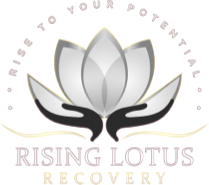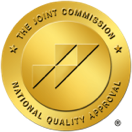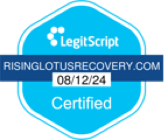Recovery is not linear, nor is it one-size-fits-all. It’s a journey that is unique for each person, yet there are common stages many go through.
For those navigating the path of addiction recovery or providing support to someone they care deeply about, understanding these stages can bring clarity and hope. They are:
- Precontemplation
- Contemplation
- Preparation
- Action
- Maintenance
Addiction recovery starts with a single step, but it unfolds into a much greater journey.
Stage 1: Precontemplation – The First Step is Awareness
The precontemplation stage begins before a person even recognizes they need recovery. They may be in denial about the severity of the issue or unaware of how deeply addiction has affected their life and relationships. At this stage, discussions about the possible impacts of their behavior are often met with resistance or deflection. The person may focus on the negatives of change rather than the positives of recovery.
This stage can be especially challenging for supportive families and friends who notice the consequences of the addiction. While interventions or gentle conversations may help start the path forward, compassion and understanding are key. A supportive environment can plant the seeds for change, even if the progress isn’t visible yet.
Stage 2: Contemplation – The Door Opens
During the contemplation stage, the person begins to recognize that their actions might be causing harm and starts considering change. While they may not yet take action, the pros and cons of recovery are being weighed. Thoughts of “What if I stopped?” and “What could life look like without this?” often emerge.
This stage can last weeks or even months as fear, guilt, or uncertainty slow forward momentum. They may still believe in the benefits their addiction presents to them. The good news is that this step is an acknowledgment of the problem and a readiness to envision something different. Support during this time should focus on encouragement and reassurance that resources, like therapy or counseling, are there when they’re ready.
Stage 3: Preparation – Laying the Groundwork
Preparation is the turning point when a person moves from thinking about change to actively planning it. At this stage, they may research treatment options, set goals for cutting back or quitting, and reach out to professionals, friends, or family for advice and support.
Key actions in this stage include:
- Establishing reachable goals.
- Identifying potential barriers to success (triggers) and ways to overcome them.
- Seeking advice from addiction recovery specialists or joining support groups.
Small actions at this step—like attending an introductory meeting or journaling about their motivations—can lay the foundation for larger change. Professional resources can make this step feel less daunting and more achievable.
Stage 4: Action – Making the Change
The action stage is where significant transformation begins. At this juncture, decisions are made, steps are taken, and effort is devoted toward change. Often, this includes entering a rehabilitation program, attending therapy, or joining a structured support group. For others, it may mean repairing relationships, avoiding old triggers, and building new, healthier routines.
This phase is challenging, as it requires focus, resilience, and vulnerability. Building coping mechanisms, understanding triggers, and developing healthy habits are essential elements addressed during this stage. While setbacks might occur, this is where determination and support systems make the biggest impact.
Stage 5: Maintenance – Building a Life Beyond Addiction
By the maintenance stage, the hard work of change is starting to show results. The person has achieved sustained new behaviors, such as sobriety, healthier coping mechanisms, and a clearer path forward. Maintenance, however, requires ongoing effort to avoid potential relapse.
This stage is not the “end” of recovery; it is a commitment to continued growth. Along the way there may be relapses back to previous stages, but that’s not the end of the story. Many find strength in ongoing therapy, community support, or aftercare services. Celebrating milestones and achievements can reinforce positive behavior and serve as a reminder of how far they’ve come.
Common maintenance strategies include:
- Regular check-ins with counselors or mentors.
- Joining relapse prevention programs.
- Practicing self-care and stress management techniques.
The focus here is on sustaining a fulfilling, addiction-free life and continuing to prioritize personal health and happiness.
Every Step Is a Victory
Addiction recovery is both deeply personal and incredibly impactful on families and loved ones. Each small step forward represents resilience, courage, and the determination to create a brighter future. These stages illustrate that recovery is not just about stopping harmful behaviors—it’s about learning, healing, and growing into the best version of oneself.
If you or someone you care for is walking this path, remember that support and professional guidance can make it less overwhelming and more rewarding. Recovery is possible, and every step you take matters.
At Rising Lotus Recovery, we believe in the power of personalized support at every stage of addiction recovery. Our professional team provides expert care tailored to your unique needs, focusing on holistic healing and ongoing care. Take the first step toward lasting change by booking a confidential appointment with us today.
Your path to a brighter future starts here—when you’re ready, we’re here to help.




























